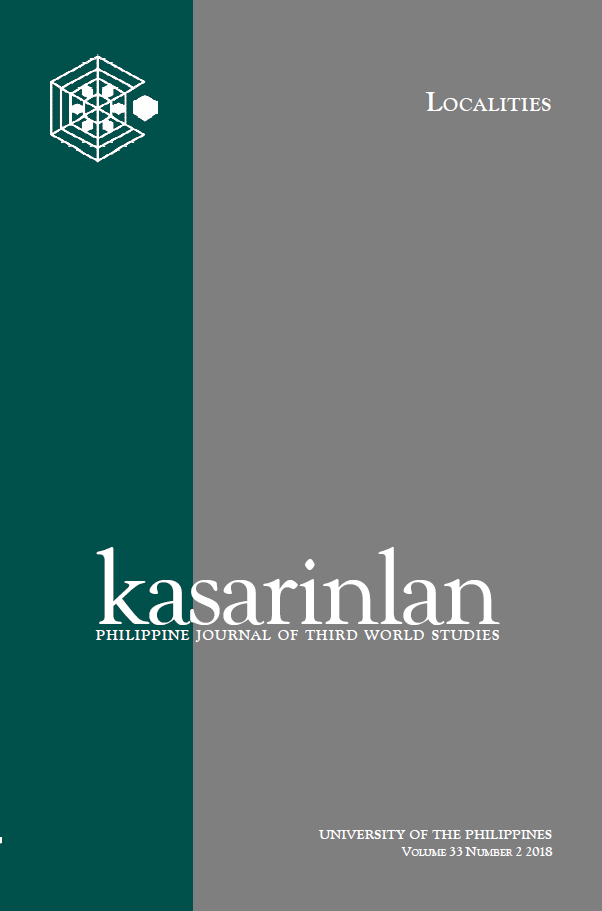Muslim Migrants and Hybrid Placemaking of Mosques in Culiat, Quezon City
Abstract
This article uses the framework of hybrid placemaking to analyze narratives behind the five mosques in the Al Salam Mosque Compound in Culiat, Quezon City. Salam as a space of representation, becomes a respite from inequalities experienced from without. But behind the veneer of homogeneity, Salam houses tensions between and among heterogeneous groups from within. Networks to the greater Muslim community, religious and cultural interpretations of faith, boundary maintenance and homeward orientation differ from one group to another, manifesting in different spatial practices. Visual, aural, and tactile boundaries—the appearance and visibility of the mosques, the language used during holy sermons, and the selection of the congregation affect the relationships between mosque makers and patrons, as well as the image of the entire community to the non-Muslim community outside. Migrants are united in the Islamic values of cleanliness, peace, and unity, but differ in their implementation. As a representation of space, Salam is the melting pot where migrants use shared values as a take-off point to build around different expressions of these values. Actors interpret their mosque making as a way to overcome their uneven conditions, and reinforce their religious and political status inside and outside the community.
Published
2020-02-02
How to Cite
RUIZ, ACT.
Muslim Migrants and Hybrid Placemaking of Mosques in Culiat, Quezon City.
Kasarinlan: Philippine Journal of Third World Studies, [S.l.], v. 33, n. 2, p. 43-88, feb. 2020.
ISSN 2012-080X.
Available at: <https://journals.upd.edu.ph/index.php/kasarinlan/article/view/7068>. Date accessed: 02 sep. 2025.
Section
Articles
Keywords
hybrid placemaking; mosque; Al-Salam Mosque Compound; migration; Culiat
By submitting a manuscript, the authors agree that the exclusive rights to reproduce and distribute the article have been given to the Third World Studies Center.



